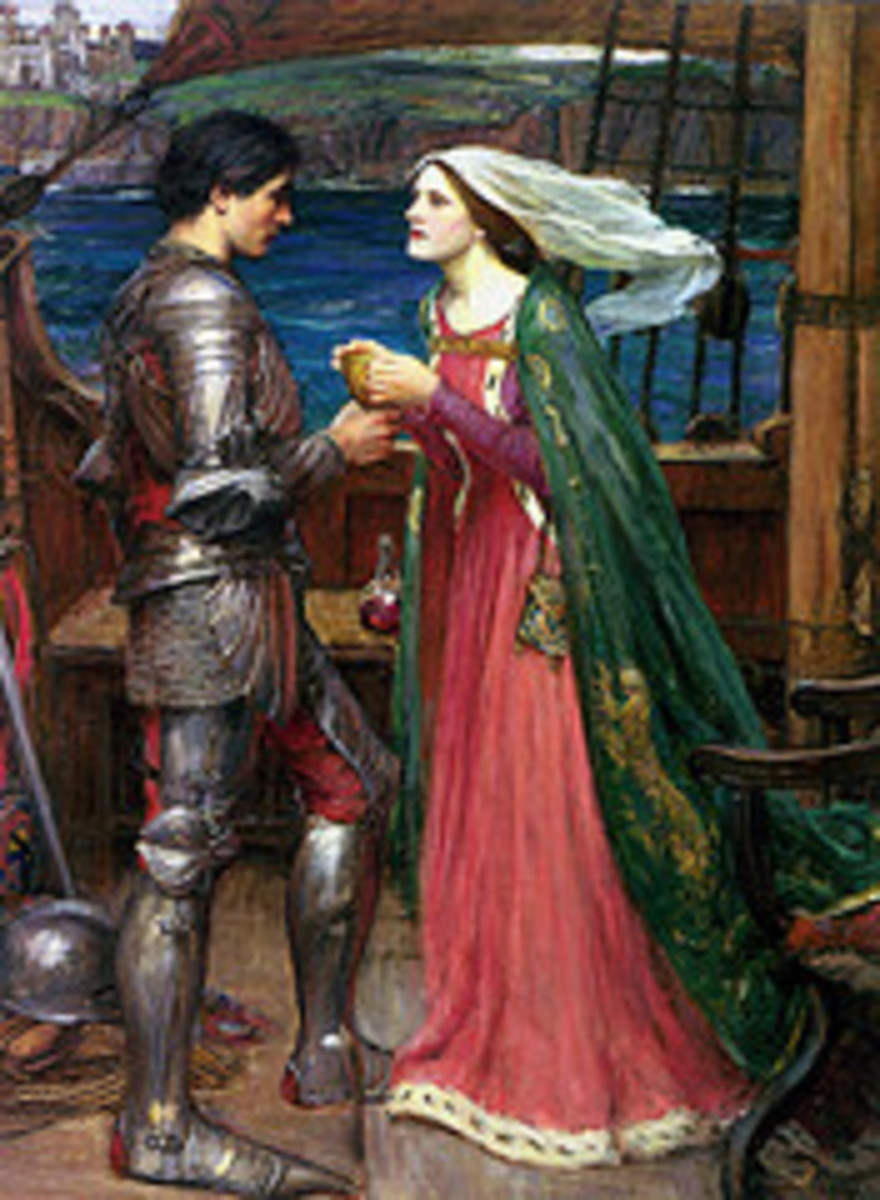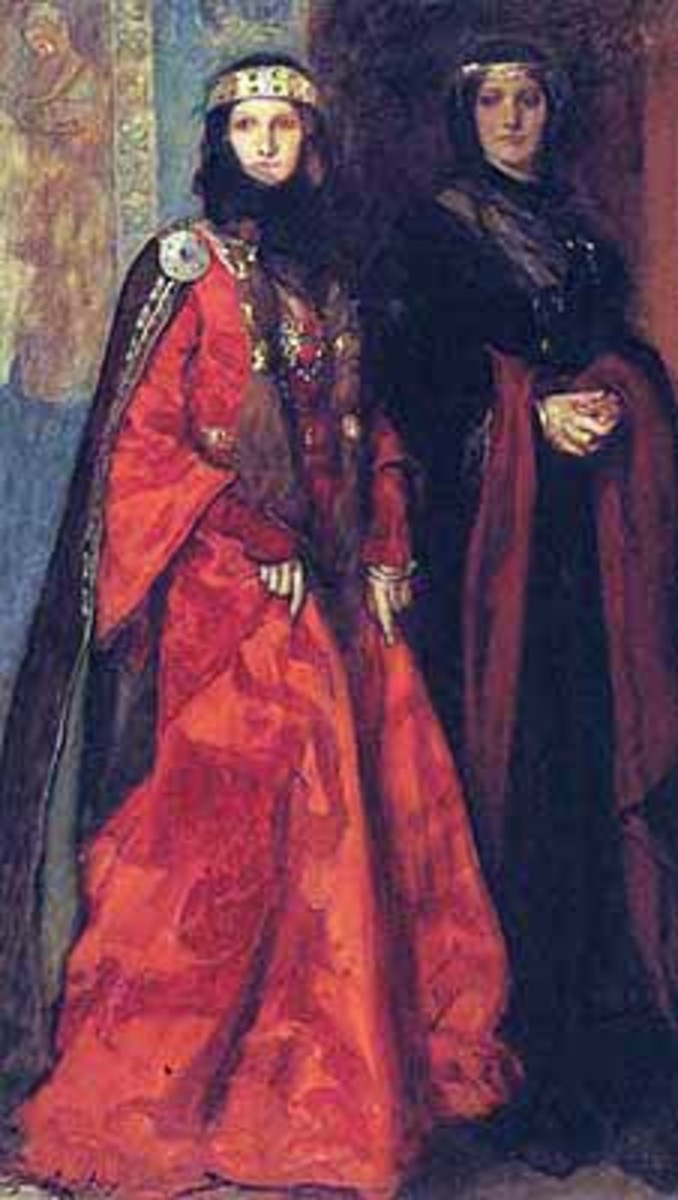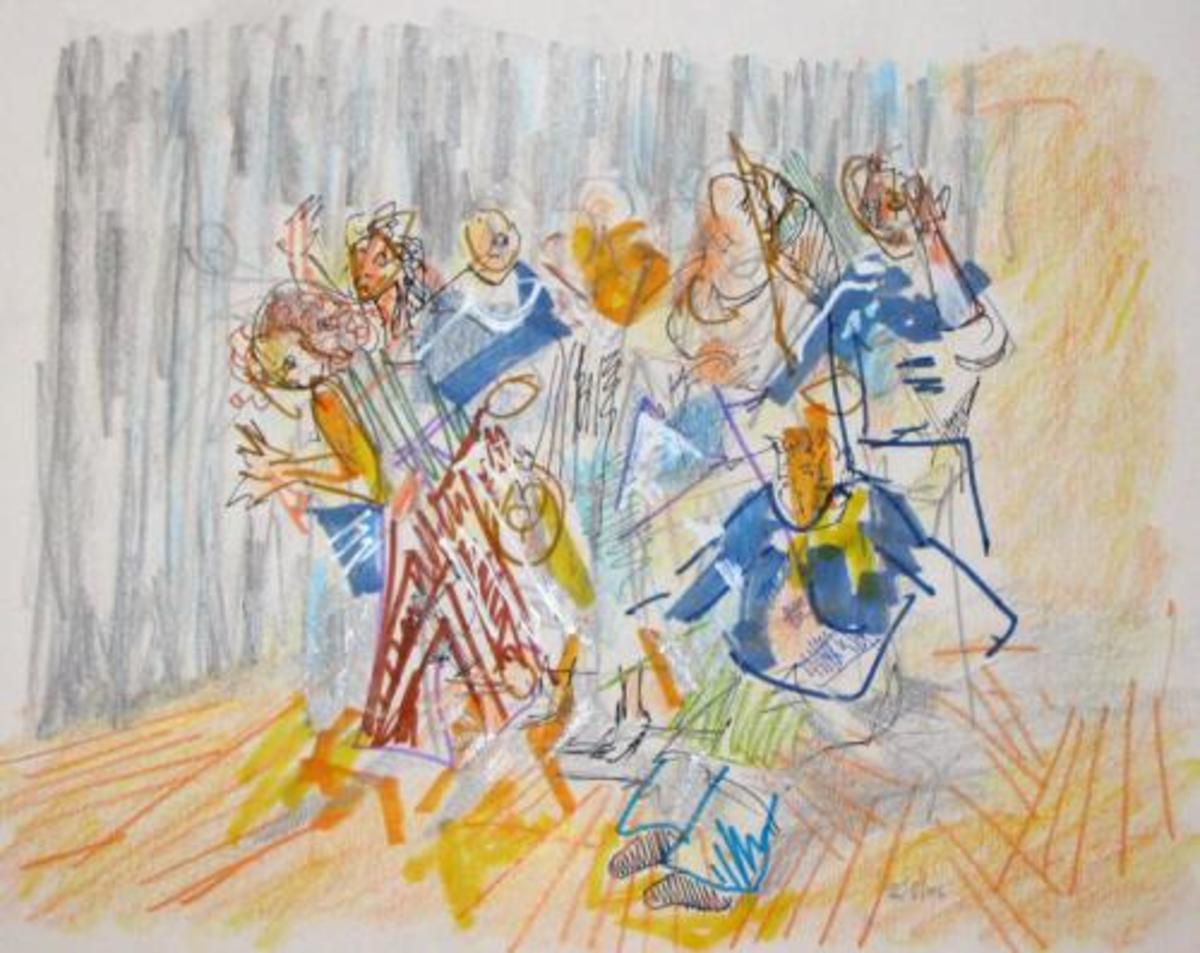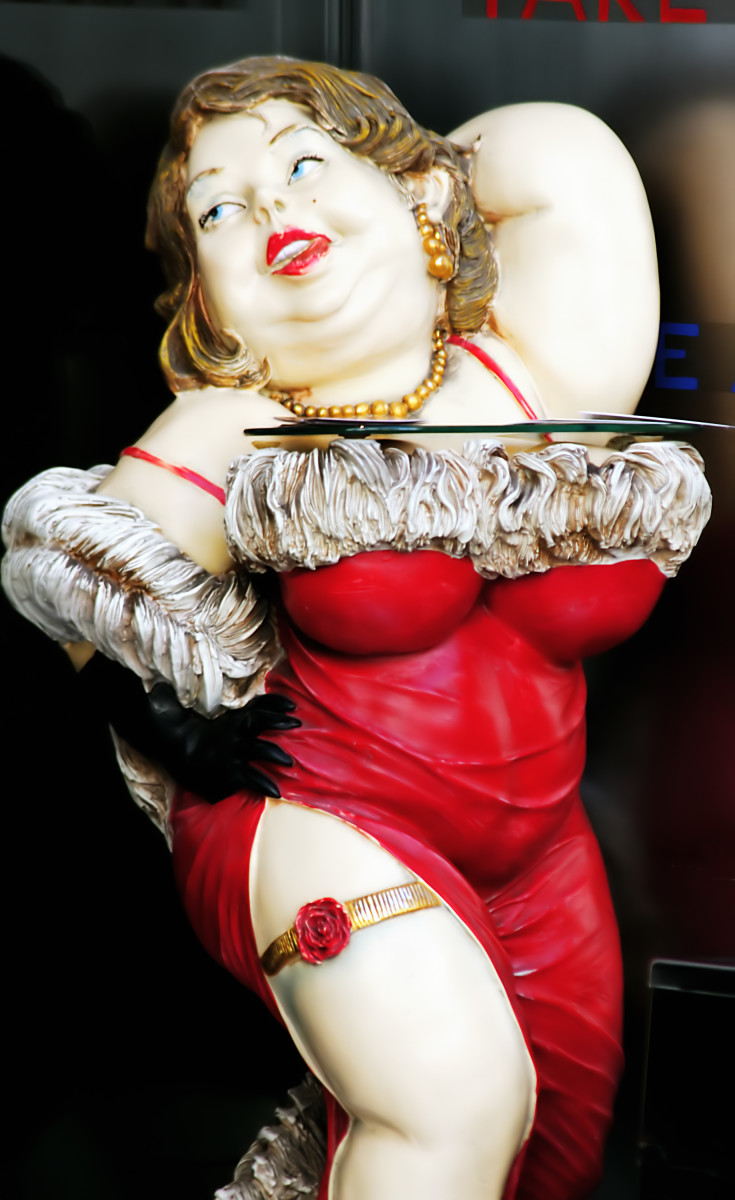The relationship between the private and the public spheres in Henry V
The public and the private in Henry V
During the course of this essay I will attempt to demonstrate the relationship between the public and private spheres by showing the ways in which the character King Henry V uses both as a means to assure his successful rule and manipulate the characters around him. Henry directs his numerous subjects by the use of two different personas, one being his public face, the other his private face. The former is a royal, almost godly stature as a king among men, which Henry uses to control his nobles and deal with others of high social stature. The latter is his more mortal status, that Henry employs when at war, or when dealing with his soldiers albeit in disguise. This is done in order to appeal to these two very different social groups, both of which Henry must call to in order to remain successful. After this I intend to argue that the private is the superior of the two despite its understated nature. I will use Kantorowicz's "two bodies"[1][i] (Kantorowicz, 1997) as a means of demonstrating the divide between the two spheres and to provide a contrasting argument to my own. After which I will disprove Kantorowic'z argument by suggesting that it is by its understated nature that the private sphere is the greater of the two, which I will support by referring to arguments parallel to mine. This will illustrate that Shakespeare intentionally places these two spheres in opposition to one another in order to show that one face is superior to the other. Upon demonstrating the ways in which these two spheres are compared and ultimately divided, I will conclude.
The best example of Henry's public persona is his successful destruction of a plot to have him killed by three of his lords. However, this is not in and of itself remarkable, it is rather the way in which Henry displays a deep understanding of political landscapes and uses the conspirators plot against them. Henry does not, upon becoming aware of the scheme, immediately reveal this knowledge. Instead, he allows the three men to sentence a drunk, and after their draconian dispense of justice he deals the same to them[ii] (Shakespeare, 2010, p27-29) This is a cunning plan to execute as it has two benefits for Henry. The first is that he is able to remove the traitors from his ranks and punish them to set an example to friend and enemy alike. The second is that it still allows him to appear magnanimous and kind to the rest of his court, showing him to be both a strong king but not without mercy. All of this is conducted in front of the rest of the lords of Henry's kingdom, making it a public spectacle and a show of the King's omniscient power. Machiavelli writes "every prince ought to desire to be considered clement and not cruel. Nevertheless he ought to take care not to misuse this clemency"[iii] (Machiavelli, 2006, p2-3) This is exactly what Henry has accomplished, by making those he needs to sentence to death sentence themselves he remains merciful in the eyes of his remaining subjects yet still powerful and untouchable. This is all accomplished by the use of Henry's public guise, that of the all powerful all knowing king. And this is a necessary appearance for his lords, as to remain successful he must appear to be more than human, to embody the concept of the king itself rather than just a man in a crown. This is what gives Henry his gravitas and political power among his subjects and foreign powers.
The grand, flourishing approach to courtly politics is well suited when dealing with lords of the kingdom, as they respect that Henry represents an actual and spiritual power. However, this is not a strategy that would do well when dealing with the bulk of the kingdoms people, its common citizens. Henry is aware of this and alters his means of dealing with them accordingly, ensuring that they see him as a great and good man, but a man nonetheless. This again requires trickery as his face is known to the soldiers who follow him, so Henry must use a disguise when speaking with them, however, his words if not his appearance are less guarded than the ones he uses to deal with his lords. Throughout his disguised exchange with his men, the King attempts to make it clear that he is as common as any one of them, it is only luck of birth that he happens to be King "I think the King is but a man... all his senses have but human conditions"[iv] (Shakespeare, 2010, p66-70). This is a side to Henry that few see, and even these soldiers who see it are not aware that it is actually their king. This private side of Henry, whilst it can only be expressed through facade to avoid revealing his identity, offers a more equal agenda than the public persona previously discussed. Henry does this in order to make his soldiers more amiable towards him, and so that they feel as though the king is not some godly figure with whom they cannot empathize but a man just as they are. This is not immediately received well by the soldiers, who still perceive their actions as meaningless in the face of a tyrant who dictates how they spend their lives and in what manner they will die. However, Henry makes the argument that "Every subject's duty is the King's, but every subject's soul is his own"[v] (Shakespeare, 2010, p70) This serves to emphasize the point that whilst Henry is the King and capable of making decisions on behalf of the men at his command, he does not own their soul, and his soul is no more valuable than theirs. His and their responsibility for their moral actions are on no hierarchy and belong completely to them. This is a viewpoint Henry can only express to the common folk of his kingdom, as this kind of opinion would only serve to make his nobles feel as though their king was not superior and therefore not worth following. This private view of Henry's endears him to his people, by giving them moral autonomy and a sense that their King is not so far removed from them as it would appear. This demonstrates clearly that Henry uses both his public and private faces in order to interact with the two different bodies of his kingdom best, one to promote his godly image, and the other to promote his earthly image.
It is here that Kantorowicz's "two bodies" theory is more evident. This is essentially the theory that the King's "body physical", his actual earthly body is accompanied by a "body politic" which is intangible and immune to all the corruptions of the body, representing his spiritual might. The King's public face that I have discussed is directly analogous to the body politic that represents his omniscient and eternal power. And on the other hand we have the King's private face that corresponds with the body physical his incarnation that is more terrestrial than his subjects are used to witnessing. However, Kantorowicz does assert an attestable point "The King's Two Bodies thus form one unit indivisible, each being fully contained within the other. However, doubt cannot arise concerning the superiority of the body politic over the body natural"[vi] (Kantorowicz, 1997, p9) This is a strong argument, as one can refer to the incorruptible and inviolable nature of the body politic in the face of the body natural, which is the opposite of both these things in its ability to show power and strength. However, it is arguable that the body physical or private face is superior due to its relation with others and its moral strength. An example of this is Henry's rallying cry to his men at the siege of Harfleur "Once more unto the breach, dear friends, once more... On, on, you noblest English, whose blood is fet from fathers of war-proof!"[vii] (Shakespeare, 2010, p41-42) Here, Henry makes use of his private face, in befriending his soldiers and making himself one of them, rather than distancing himself from them by the use of his public, politic face. And by humanizing himself he not only endears himself to his soldiers but he demonstrates their essential equality. Henry states that it is English blood that makes them strong, not their English king, hearkening back to the previous argument made by Henry that every man owns his soul. In a very real sense here, Henry does weaken himself by relying on his body physical to rally his men, as he does not appear as invulnerable or omniscient. However, this is what makes his power more impressive rather than less. That he can command an army of such terrible warriors, as Henry states they are, and he can do so as merely a man shows how extraordinary he really is in the eyes of his men. Therefore, by using compassion instead of distance, Henry strengthens his own position, as well as the conviction of his soldiers.
It is evident then, that throughout the play Henry is defined by these two very different spheres of influence, and the ways in which he uses them both, as Rabkin writes "Shakespeare reveals the conflicts... our longing that authority figures can be like us and our suspicion that they must have traded away their inwardness for the sake of power"[viii] (Rabkin, 1977, p296) This is a theme that leaves us with the decision of which sphere is the superior one, that of the public or the private. Henry himself seems to desire to make use of the private more so than the public, for example when he states "What infinite heart's ease, must King's neglect that private men enjoy!"[ix] (Shakespeare, 2010, p72) It is obvious then, that Henry envies the common man in his openness, something that he could never enjoy as a king. This runs counter to Kantorowicz argument above, that stated the public sphere, or body politic was superior. Based on the evidence of Henry's own utterances, it would appear that Shakespeare advocates for the private sphere, as this is the truer, more empathetic one of the two. Whilst powerful and impressive, the public face of the King is just that, the public face. It is his private face that is truly representative of Henry as a man rather than a symbol. And whilst this lacks the might of the spiritual, it is made all the more compelling for it. This theory is supported by Barton, who considers the arguments of all sides, but rests finally on the one I have supported, describing Henry as "the man placed at a disadvantage in the sphere of personal relations by the fact of a corporate self"[x] (Barton, 1994, p92) Henry is in fact alienated by his public face, and as a result he envies those who live without one. He regards his duty as a King as a burden rather than as a way to a greater plane of being. This clearly shows that of the two spheres, or two bodies, it is the public sphere, the body politic that is the lesser of the two.
In conclusion, I have demonstrated the ways in which Henry utilizes both the public and the private in order to both manipulate and endear himself to his subjects. His public face is reserved for the formal courtly occasions when Henry must deal with lords and those of high stature, whereas his private face he uses when dealing with the common people of his kingdom. This is done as each group responds best to what they know, the lords responding better to a hierarchy with a powerful, unassailable King at the top, and the soldiers responding better to someone who is a man just as they are. I then demonstrated why Kantorowicz's theory of the public face, or body politic, being superior is flawed as it does not take into account the reaction of Henry's subjects. When using the private face, and appearing as a man, Henry not only wins the support of his men but is represented as being even more extraordinary because of his humanity. Henry himself longs for the "ease" that would come with living with one's private face, rather than jumping between the two. It is clear then, that whilst Henry makes use of both the public and the private, it is the private that remains both the most powerful and superior, making Henry's longing for it all the more than understandable.
[1] Kantorowicz, E. 1997. The king's two bodies. Princeton, N.J.: Princeton University Press.
Bibliography
[i] Kantorowicz, E. 1997. The king's two bodies. Princeton, N.J.: Princeton University Press.
[ii] Shakespeare, W. 2010. Henry V. 3rd ed. London: Penguin Books.
[iii] Machiavelli, N., Martelli, M. and Marcelli, N. 2006. Il principe. Rome: Salerno.
[iv] Shakespeare, W. 2010. Henry V. 3rd ed. London: Penguin Books.
[v] Shakespeare, W. 2010. Henry V. 3rd ed. London: Penguin Books.
[vi] Kantorowicz, E. 1997. The king's two bodies. Princeton, N.J.: Princeton University Press.
[vii] Shakespeare, W. 2010. Henry V. 3rd ed. London: Penguin Books.
[viii] Rabkin, N. 1977. Rabbits, Ducks, and Henry V.Shakespeare Quarterly, 28 (3), pp. 279--296.
[ix] Shakespeare, W. 2010. Henry V. 3rd ed. London: Penguin Books.
[x] Barton, A. 1994. Essays, mainly Shakespearean. Cambridge [England]: Cambridge University Press.







